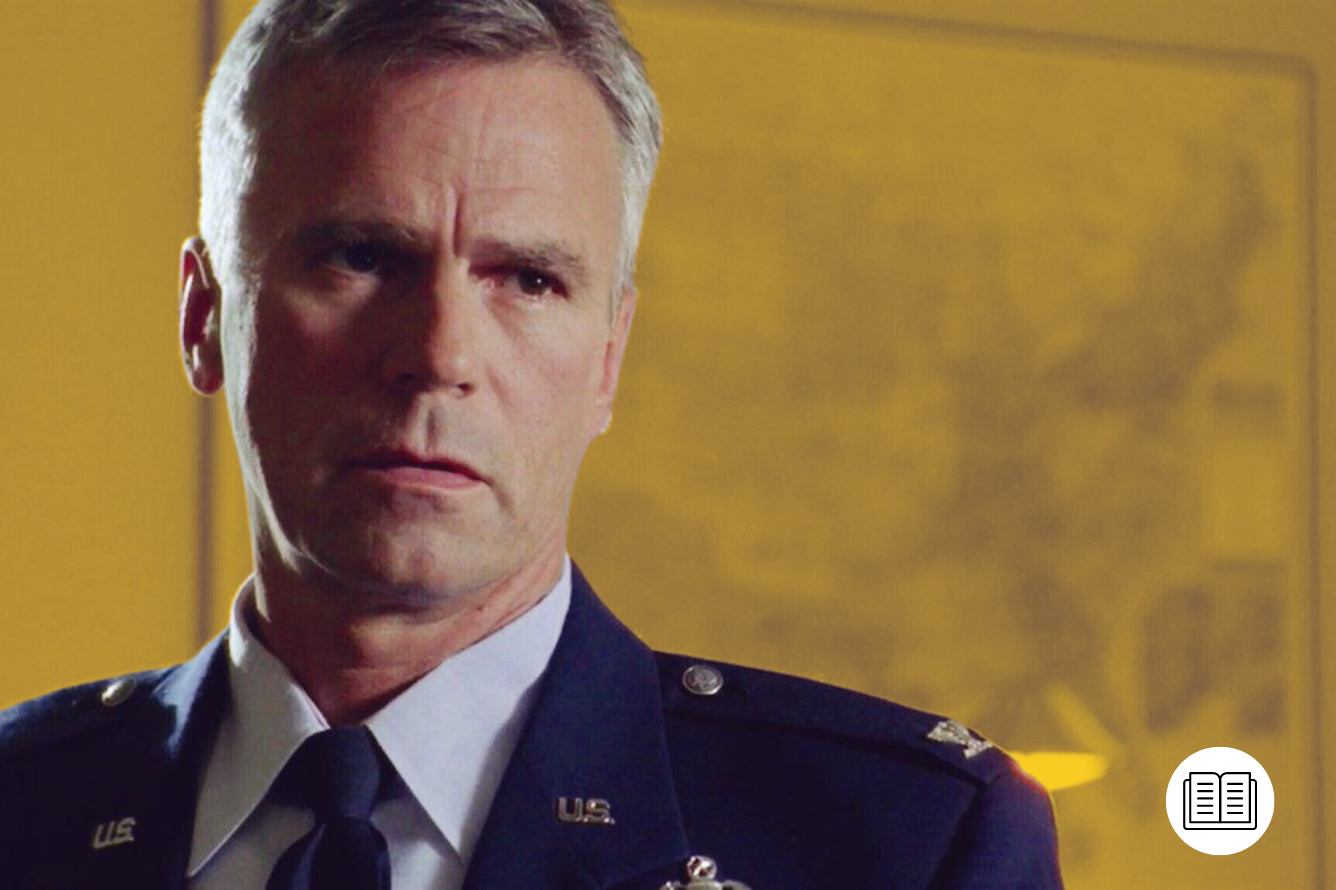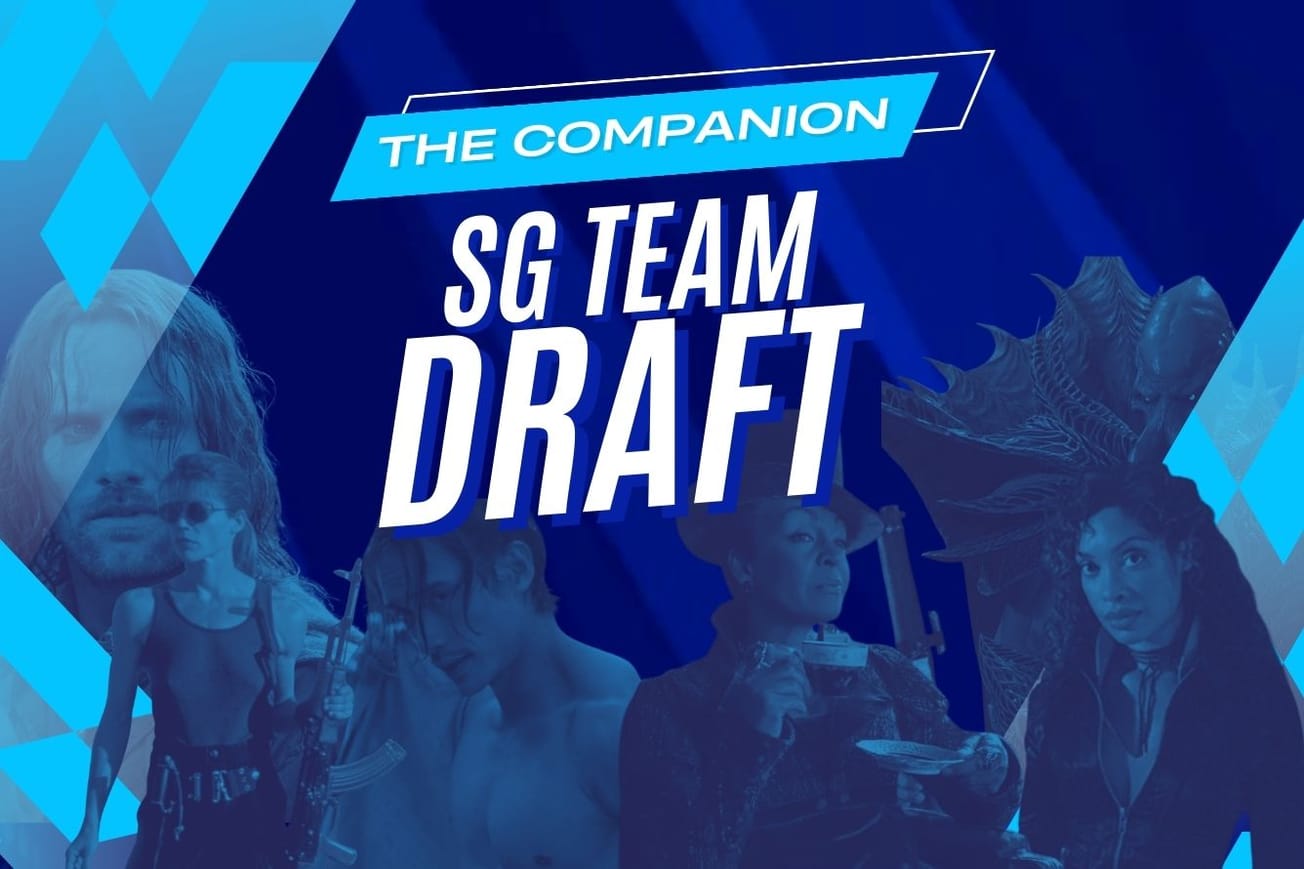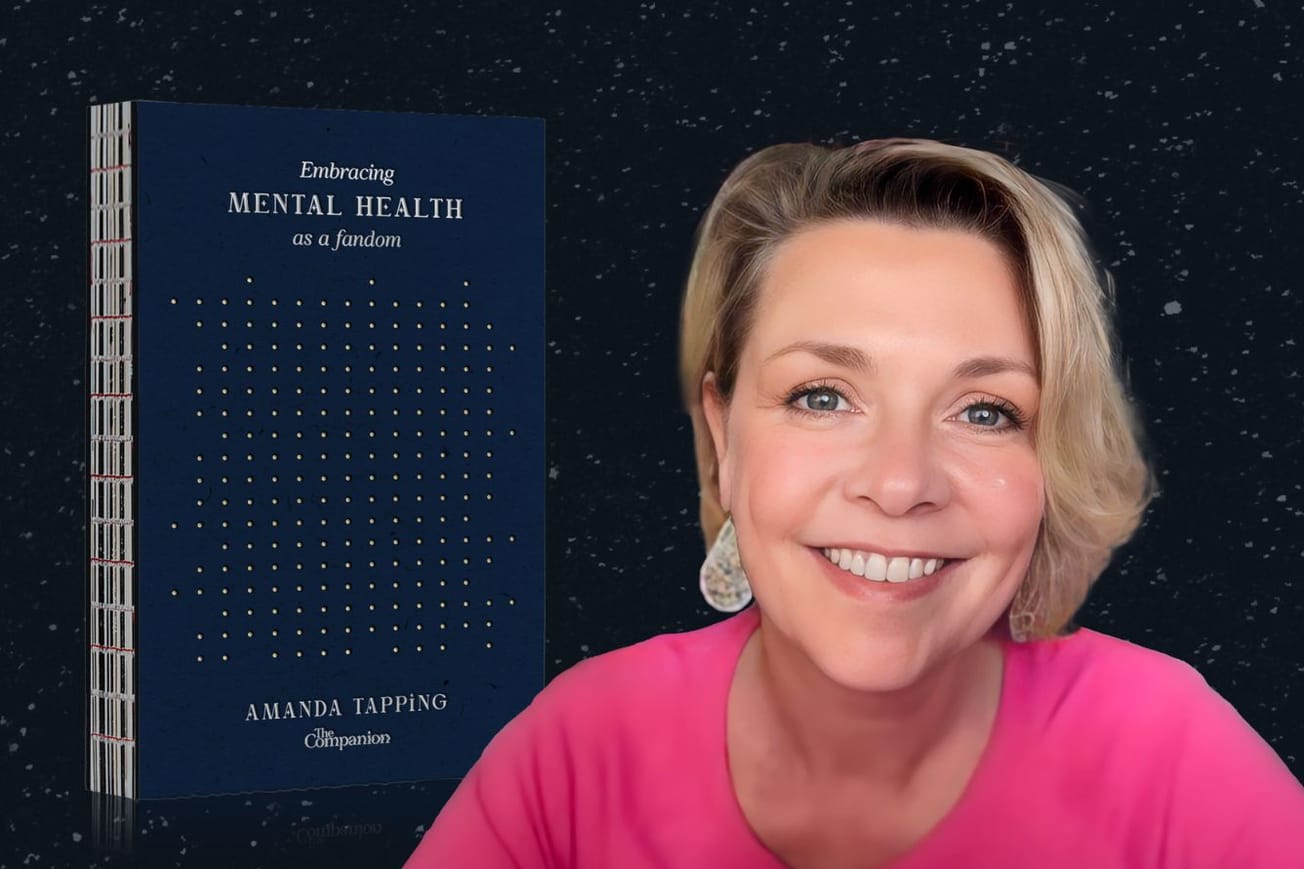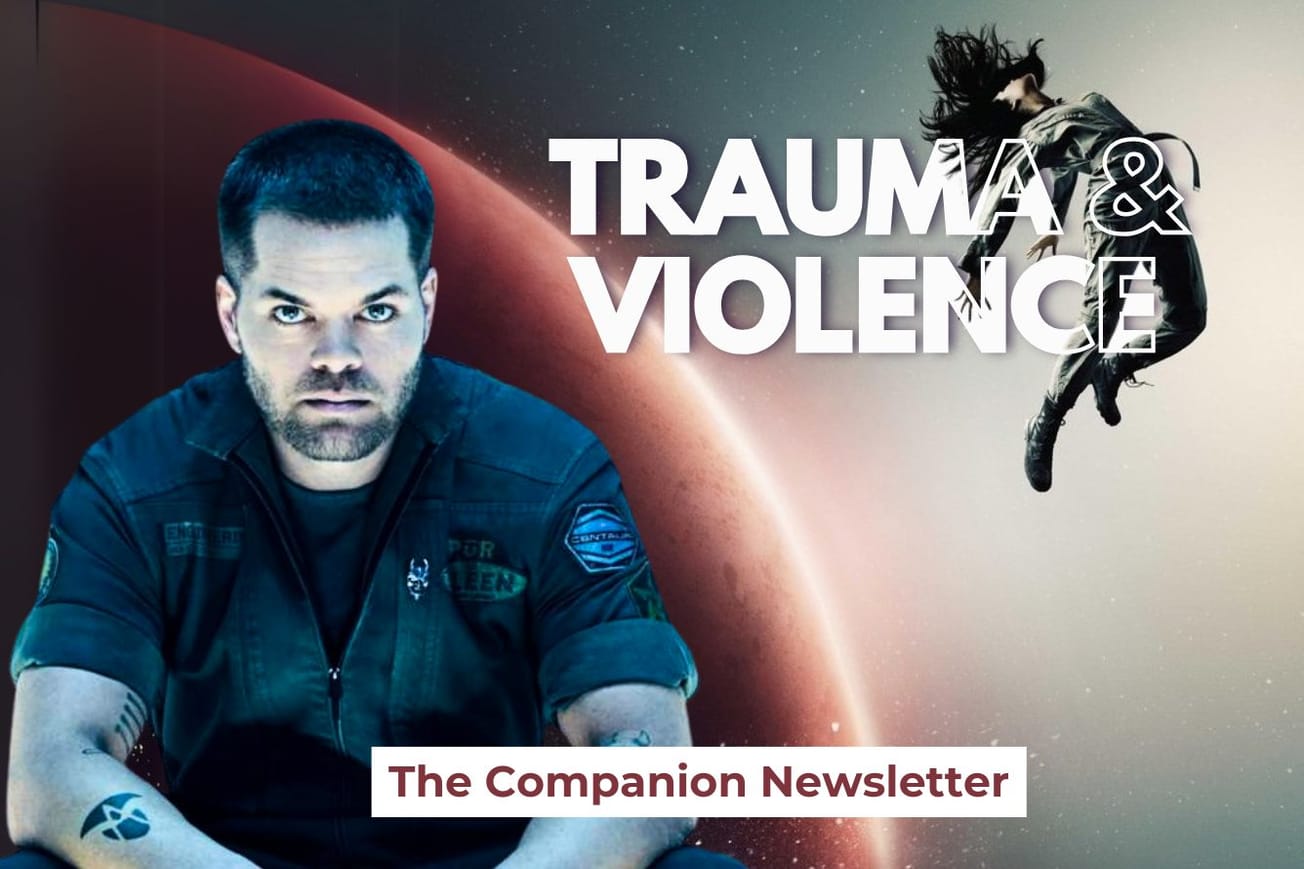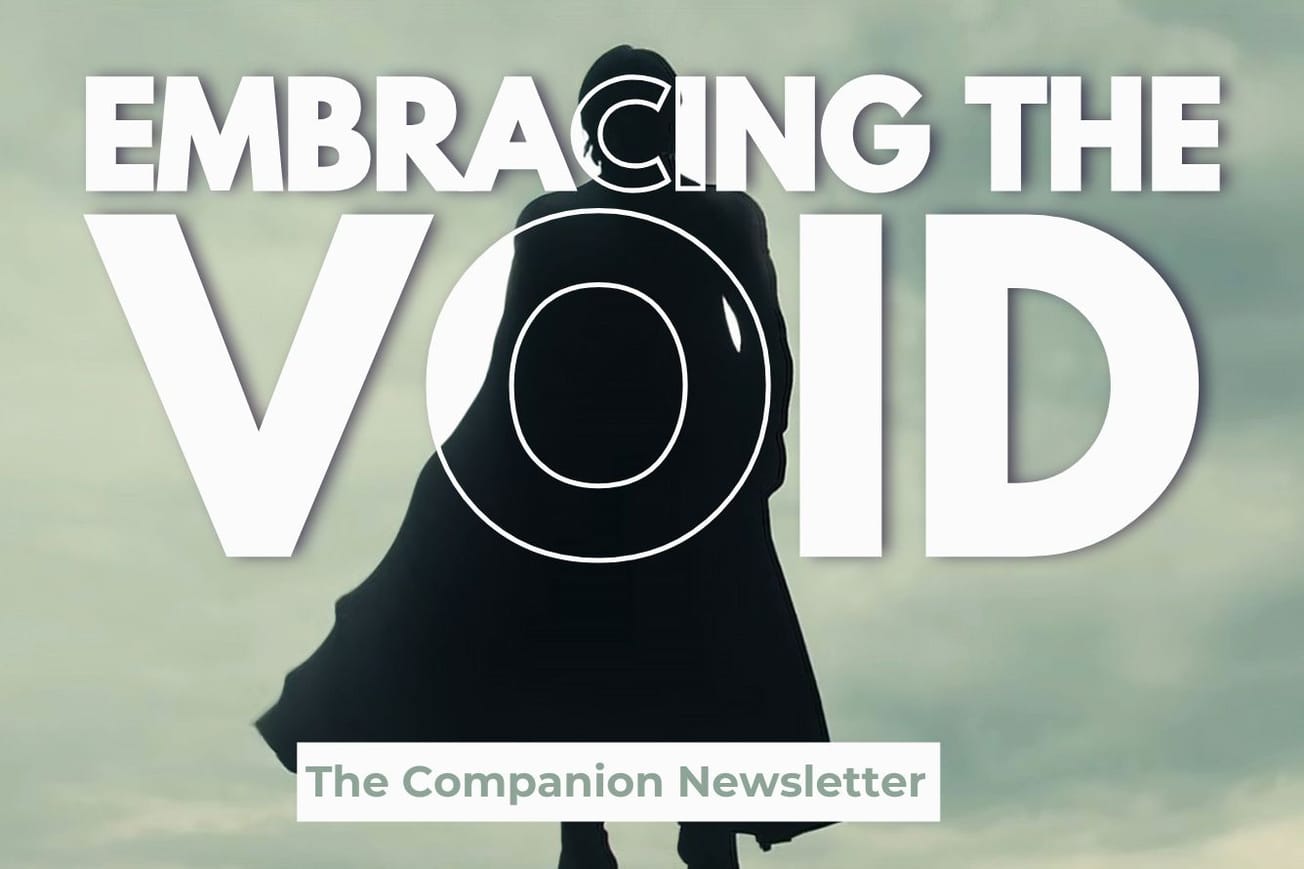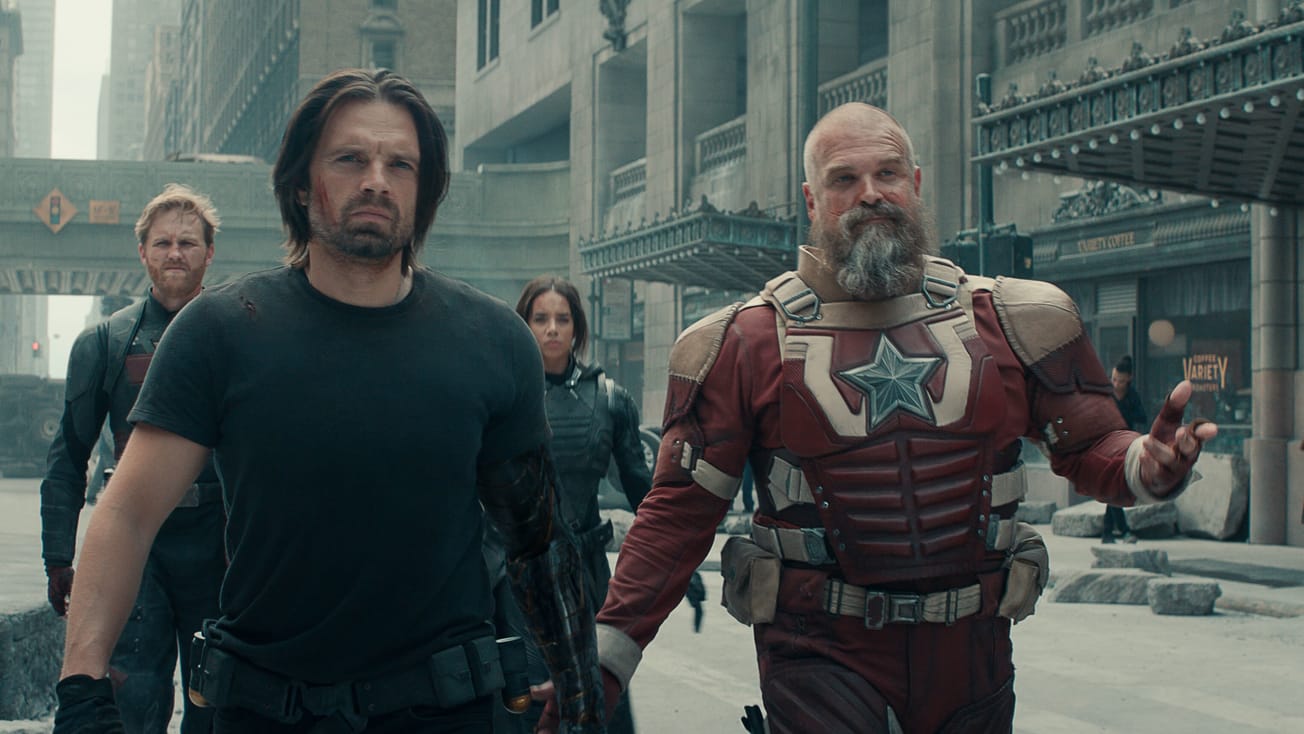It is a truth universally acknowledged that every sci-fi nut worth their salt will primarily be obsessed with one of the three core ‘Star’ franchises: Star Wars, Stargate, and Star Trek. That’s not to say they won’t like the others, of course, but their heart, body, and soul will belong primarily to the ‘Star’ of their choice – and they will dedicate hours, weeks, months, and years to the fine art of proving why it’s superior to the others, too.
Setting Star Wars aside this once (who has time for movies when there’s so much good TV to tackle, eh?), the majority of people will insist that Star Trek is the elite. And their argument is sound, I suppose: they say that it presents us with a future of ourselves as an egalitarian, utopian race – one which has shrugged off the habit of war in favor of exploration and friendship. Which focuses its attention on the arts and sciences. Which welcomes those alien races it encounters on its oh-so-bold travels with open arms, no questions asked. And which encourages us to strive to be better, always.
Now, you’ll get no quibbles from me on any of the above (although I will point out that, for such a peaceful civilization, the perfect people of Star Trek’s universe sure have spent a lot of money on those phasers and torpedoes). What I do take umbrage with, though, is when these Trekkers – usually in the same breath – dare to dismiss Stargate SG-1 as inferior, citing its “uglier” portrayal of humanity as the reason.

The Stargate SG-1 team, Trekkies point out, go into most alien encounters laden down with weapons: pistols, grenades, machine guns, Ma’Tok staffs, Zat’nik’tels, and any other interesting (read: deadly) bits and bobs they pick up on their travels around the universe. They are run by the US military, locked away in a secret mountain base, and their actions (and superior tech) are kept hidden from the rest of the world. They are, ever so occasionally, involved in shady conspiracies – such as, for instance, that journalist who a) knew too much and b) was mown down in a very suspicious hit-and-run in the middle of Washington DC. And, sure, they have absolutely made a lot of enemies (and mistakes) during their many wormhole-hopping missions – I’m thinking the Goa’uld System Lords, the Replicators, the Priors, the Lucian Alliance, and rogue factions within the NID – which have led to several ‘Earth is doomed’ scenarios.
Fine, more than several: lots. Loads. One per season, minimum.
Jack O’Neill as We First See Him
To be fair to SG-1, their primary goal isn’t to “seek out new life and new civilizations”, but to explore the galaxy and defend against any and all alien threats. So, no, they don’t have a charmingly debonair Picard, Kirk, or Janeway leading them on their travels; instead, they have seasoned soldier Jonathan ‘Jack’ O’Neill (that’s O’Neill with two Ls). And when I say seasoned, I mean seasoned; this guy has been dipped and rolled in garlic, onion powder, salt, black pepper, dried parsley, smoked paprika, chili flakes, and extra virgin olive oil – twice. Maybe even three times.
When we first meet Jack, he’s nursing a whole lot of grief and anger – which, despite me promising I wouldn’t mention Star Wars again, usually leads to hate and, ultimately, to the Dark Side. He is heartbroken over the death of his son, divorced from his beloved wife, psychologically damaged from spending four months in an Iraqi prison, and nursing a wealth of good grudges (here’s looking at you, Colonel Frank Cromwell).
As such, he brings a nuclear warhead along to Abydos on his first-ever trip through the Stargate (in the 1994 Stargate movie), believing it to be a suicide mission and being more than okay with that. One thing leads to another and, ultimately, O’Neill winds up using that bomb to blow Ra’s mothership to smithereens, inadvertently beginning Earth’s war with those damned snakeheads.
None of this, I realize, is disproving the Trekkers’ hot take on Stargate SG-1; based on everything we’ve seen in the world so far, it does seem as if the series holds up a dark mirror to humanity. Except, and here’s the kicker, things change when O’Neill is recalled to active duty for one year after the events on Abydos (‘Children of the Gods’ – S1, Ep1) – albeit slowly.

You see, O’Neill isn’t introduced to us as a perfect commander; he has a multitude of flaws, including his quick temper, inability to keep his mouth shut when confronted with a Big Bad, and impatience with complicated explanations (aka anything Samantha Carter or Daniel Jackson say to him in the show’s earlier episodes). He is fond of weapons, unwilling to trust others easily – see his interactions with the Tok’ra – and he has been known to disobey direct commands on a number of occasions.
Essentially, O’Neill is, overwhelmingly, human. This means that much like all the rest of us overwhelmingly human people watching and rewatching the show at home, he has the capacity for growth and change. Growth and change which, I hasten to add, we see in abundance throughout the course of the TV series.
This all starts small, of course: he quits smoking during his mission to Abydos, for example. And he finds a way to communicate with the absent Daniel Jackson that doesn’t involve leaping through the Stargate with all guns blazing; instead, he sends a box of Kleenex, remembering that his old friend suffered from allergies. But then, when he comes face to face with Apophis’ First Prime during a grim mission to Chulak, O’Neill ups the ante in a big way. Not only does he persuade that aforementioned enemy to join forces with SG-1, but he sets up a beautiful 10-year friendship with Teal’c (because, yes, it’s our beloved Teal’c) in the process. A friendship which, Teal’c tells him at one point, feels more brotherly than anything else – despite the yawning age gap between them. And a friendship which, we learn later via one of the show’s many presentations of alternate universes, spells the difference between humankind’s continued existence and… well, and certain destruction. Go figure.
We See Jack O’Neill Become a Better Man
O’Neill takes baby steps towards becoming a better man, sure, but they are baby steps with huge, world-shaping effects. And, over time, he quietly begins to use, too, the toolkit of an excellent and respect-commanding leader; he approaches briefings with humility, never expecting to be the smartest person in the room. He knows how to delegate like a pro. He listens, and listens hard, before making any rash decisions. He allows his heart to rule his head when needed (hell, he risks war when he takes the insanely intelligent Merrin away from the Orbanians and teaches her how to be a true kid in ‘Learning Curve’ – S3, Ep5). He opens his mind to new ideas, no matter how different they are from his own. He tackles his own prejudices head-on – even agreeing to be blended with a Tok’ra symbiote, albeit with less than happy consequences (‘Frozen’ – S6, Ep4, more on that later). And it’s for all these reasons and more that the Asgard – one of the universe’s most highly evolved humanoid races – respects him so very deeply, even going so far as to name one of their best ships after their Tau’ri friend (‘Small Victories’ – S4, Ep1).
To quote Carter in ‘Heroes: Part 1’ (S7, Ep17):
“He’s an amazing man. After everything he’s done, he’s still modest, quite self-effacing actually. He even likes people to think he’s not as smart as he really is. Bottom line: he’s an incredibly strong leader who’s given more of himself for this program than anyone has given for… well… anything I can imagine.”

O’Neill, by all accounts, should represent the very worst of humanity; our warmongering and jingoistic nature, our unerring ability to be coolly calculating, and our mistrust of those we deem to be different from us. Instead, though, he comes to represent the very best of our species. He’s warm and funny, and endlessly kind. He’s laidback, too, and doesn’t insist that people treat him any differently – despite outranking almost everyone. He goes above and beyond for the people he loves, consistently refusing to leave any man, woman, or alien behind. And, while his capacity for greatness blooms slowly throughout the series, it’s there and very much felt throughout.
Yes, Star Trek offers us an idyllic utopia – but it is so perfect and set so far in the future, and so removed from our current reality, that it feels impossible to meet its dizzyingly high standards. To suggest that I base my quest for self-betterment on USS Enterprise’s adventures genuinely feels like… well, it feels like being a have-a-go jogger, standing at the starting line alongside Usain Bolt, and being expected to finish the race at the exact same time as him.
Colonel Jack O’Neill, on the other hand, begins his journey in the ’90s. He, like us, is a first-time jogger on the track. He’s not trained for this sprint, nor is he expecting to win any medals at this point – he’s simply here to do his best, forget the rest. And, slowly but surely, his efforts pay off: we watch him get faster and stronger and build up his endurance. We watch him stumble, twist an ankle, and still pick himself up. We watch him go from last place to fifth, to second, to first. And we, jogging alongside him, are offered a positive and attainable example of how we can adapt, grow, and work towards becoming better people.
Considering everything that’s happened over the past two years, and a lot has happened, having a role model like O’Neill is no small thing. Hell, just being offered a blueprint – or a map, let’s say – that gently guides us toward utopia is no small thing. After all, there are no quick fixes in life; there is nobody on standby to ‘beam us up’ into a better world. We can’t hit lightspeed on humanity and zoom ourselves forward to a space in time where war, poverty, and general angst don’t exist anymore. Instead, we have to make like O’Neill and take it slow. We have to learn from our mistakes, patch up our wounds, and soldier on. Because life is a journey and striving to improve ourselves every single day is the goal.
Jack O’Neill Faces Death in ‘Abyss’
It doesn’t sound like much, I suppose. O’Neill himself might, in fact, refer to it as a Plan F: as in, we are totally f… you get the picture. But, while small Stargate-inspired goals aren’t as impressive to talk about as, say, the big dreams of a Trekkie, they’re much easier to stick with and see real results from. They allow us to gain small wins and build momentum. And, as this momentum pushes us forward, it allows our small goals to grow in turn. It helps us build up to the sort of greatness that O’Neill demonstrates best in ‘Abyss’ (S6, Ep6), a whopping six seasons into Stargate SG-1’s run.

For anyone who doesn’t have their crib sheets to hand, this is the episode in which O’Neill is captured by Ba’al, taken to Asdad, and tortured in the most horrific of fashions. And, while it’s all too easy to assume, at first, that O’Neill approached Ba’al under the influence of the Tok’ra Kanan (whom he blended with in a previous episode), it soon becomes apparent that there’s much more to it than that. This is not a petty revenge mission gone wrong; rather, this is a mission inspired by O’Neill’s personal moral code. Because, as mentioned already, our beloved leader would never willingly leave anyone behind. As such, Kanan feels compelled to return and face the music, as it were, in order to rescue Ba’al’s lo’taur, Shallan, who he previously used and betrayed in order to get the information he needed about the System Lord for the Tok’ra.
During this time, O’Neill was weakened and barely conscious; his body was being ruled by Kanan. Still, though, the strength of his convictions – and his passion to do right by people, no matter the cost – overpowered Kanan’s own (and, let’s face it, more dubious) ethics. Sure, this episode also makes it abundantly clear that O’Neill isn’t ready to ‘ascend’ to a plane of higher being, à la Jackson and Oma, but he has become an example of humanity at its very best. It took him six seasons to get there, but he did it all the same.

Think about it like a video game; nobody runs into the big boss battle when they’re still at Level 1. Well, nobody sane does, anyway. Instead, we need to channel our inner O’Neill (everyone has one; you can usually tempt him out with chicory coffee – if he’s been infiltrated by Urgo, that is – or the merest mention of fishing), start with something manageable and scale it up over time.
Still not convinced? Well, then I urge you to make like the Enkarans and give O’Neill’s methods – and the ethos of Stargate – a chance. Just one chance. Winter is coming and we all have a lot of time on our hands, so make like me and rewatch the entire series from start to finish. Take notes, maybe. Pay attention to the quiet evolution taking place on the screen before you. And, come the end of it all, don’t you dare tell me that O’Neill isn’t the ultimate guide to a low-hanging utopia. Don’t you dare.
This article was first published on October 1st, 2021, on the original Companion website.
The cost of your membership has allowed us to mentor new writers and allowed us to reflect the diversity of voices within fandom. None of this is possible without you. Thank you. 🙂


